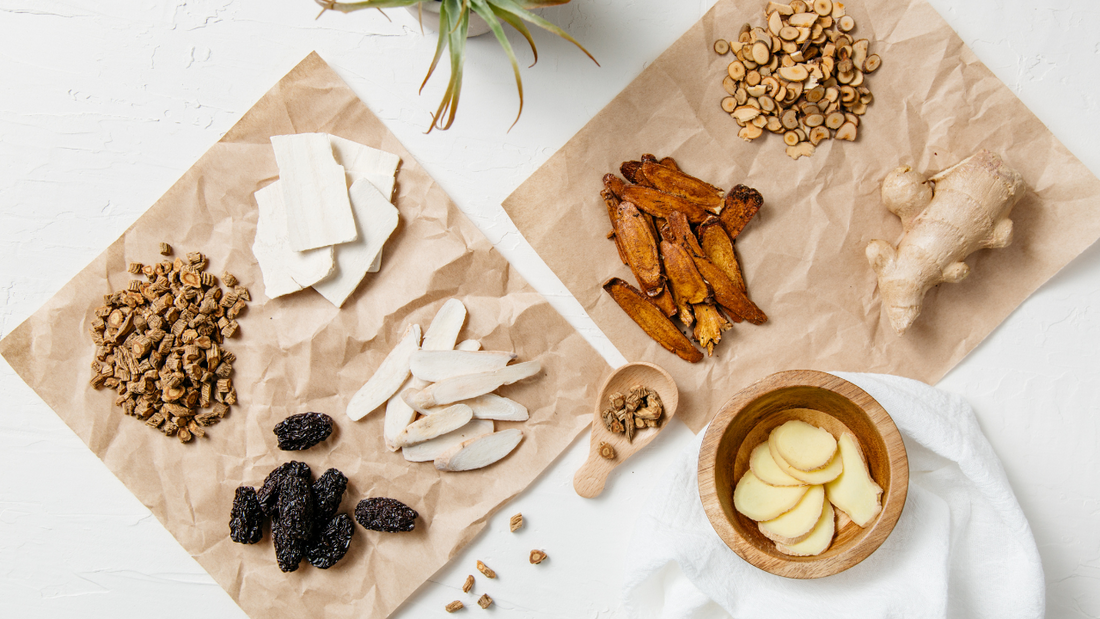Supporting Your Body After Mold Exposure with Herbs

Share
Disclaimer: This content is for informational purposes only and does not constitute medical advice. Zuma Nutrition’s products are dietary supplements, not intended to diagnose, treat, cure, or prevent any disease. Consult a healthcare professional before making changes to your health regimen.
Understanding Mold Exposure
Mold produces mycotoxins, tiny compounds that may enter the body through inhalation, ingestion, or skin contact. Over time, these toxins can contribute to symptoms like sinus issues, headaches, or fatigue. Supporting your body’s detoxification pathways—primarily through the liver and kidneys—can be helpful, but always under medical supervision. Herbs may play a complementary role in this process.
Herbs That May Support Recovery from Mold Exposure
Below are herbs traditionally used to support detoxification and immune health. Some are included in our Mold & Mycotoxin Cleanse Tonic for their potential benefits. Always consult a healthcare professional before use.
-
Astragalus
Astragalus (Astragalus membranaceus) is an adaptogenic herb traditionally used to support immune health. Research suggests it may enhance immune function, which could help the body cope with environmental stressors like mold exposure Source. It may be particularly useful for respiratory health. -
Maca
Maca (Lepidium meyenii) is known for supporting energy and adrenal health. While not directly linked to mold detoxification, it may help manage fatigue associated with stress Source. Its adaptogenic properties support overall resilience. -
Grapeseed Extract
Rich in antioxidants like oligomeric proanthocyanidins (OPCs), grapeseed extract may help combat oxidative stress from environmental toxins Source. It supports general wellness but doesn’t directly remove mycotoxins. -
Rhodiola
Rhodiola (Rhodiola rosea) is an adaptogen that may reduce stress and support immune health Source. It could help alleviate fatigue and stress-related symptoms, which are common with mold exposure. -
Siberian Ginseng
Siberian ginseng (Eleutherococcus senticosus) is believed to support immune function and stress resilience Source. It may help the body adapt to challenges but isn’t a direct detox agent. -
Milk Thistle
Milk thistle (Silybum marianum) contains silymarin, which may support liver health by protecting liver cells Source. As the liver plays a key role in detoxification, milk thistle is a key ingredient in our Liver Cleanse & Support Tonic. -
Turmeric
Turmeric (Curcuma longa), with its active compound curcumin, has anti-inflammatory and antioxidant properties Source. It may help reduce inflammation, a common response to environmental stressors. Our Liposomal Curcumin Tonic offers a bioavailable form of curcumin. -
Garlic
Garlic (Allium sativum) has antimicrobial properties due to compounds like allicin Source. It may support detoxification but isn’t a cure for mold-related issues.
Chinese Herbs for Mold Exposure Support
Traditional Chinese Medicine (TCM) offers herbs that may complement a mold exposure recovery plan:
-
Astragalus (Huang Qi)
As noted, astragalus may support immune and respiratory health, aligning with TCM’s focus on lung function Source. -
Reishi Mushroom (Ling Zhi)
Reishi is used in TCM to support immunity and calm stress Source. It may help with the emotional toll of mold exposure. -
Bai Zhu
Bai Zhu (Atractylodes macrocephala) is used in TCM to address “dampness,” which may relate to symptoms like sluggishness Source. It supports digestion and vitality.
How to Use Herbs Safely
Herbs can be part of a broader approach to wellness but aren’t a substitute for medical treatment. Here’s how to incorporate them safely:
- Consult a Professional: Work with a healthcare provider or herbalist, especially if you suspect mold exposure. They can ensure herbs don’t interact with medications.
- Follow Dosage Guidelines: Use herbs as directed on product labels or by a professional. Our tonics provide clear dosing instructions.
- Combine with Lifestyle Changes: Support detoxification with a nutrient-rich diet, hydration, and, if advised, practices like saunas. Address mold in your environment with professional remediation.
- Be Patient: Herbs may take time to show effects, and results vary. Monitor your symptoms and seek medical advice if they persist.
Summary
Herbs like astragalus, milk thistle, and turmeric may support your body’s natural defenses and detoxification processes after mold exposure. Our Mold & Mycotoxin Cleanse Tonic, Liver Cleanse & Support Tonic, and Liposomal Curcumin Tonic are designed to incorporate these herbs for your convenience. However, mold exposure is complex and requires professional medical advice. Consult your healthcare provider to create a personalized plan, and use herbs as part of a holistic approach that includes a healthy lifestyle and environmental changes.
Disclaimer: These statements have not been evaluated by the FDA. Our products are not intended to diagnose, treat, cure, or prevent any disease. Individual results may vary.